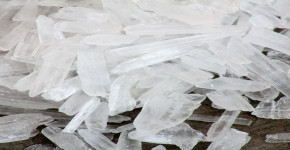 Launch apps instantly. Claim $200 credits on DigitalOcean
Launch apps instantly. Claim $200 credits on DigitalOcean
Solar Wire 101: Understanding DC Cables for Your Solar System
Written by juli » Updated on: March 27th, 2024

The sun's rays hold immense potential for powering your home or business. However, harnessing that potential requires a network of specialized components, and among the most crucial players are solar wires. These unsung heroes silently carry the direct current (DC) electricity your solar panels generate to the inverter, where it's converted into usable alternating current (AC) for your appliances.
Understanding solar wire is essential for anyone considering a solar power system. Choosing the right cables can significantly impact your system's efficiency, safety, and longevity. This Solar Wire 101 guide will equip you with the knowledge to make informed decisions and find the best solar wire price in Pakistan.
Why Regular Wire Won't Do
Grabbing some leftover electrical wire for your solar project might be tempting. However, solar cables are specially designed to meet the unique demands of a solar power system. Here's why regular wire falls short:
Voltage Handling: Solar panels can produce high voltages, often exceeding 100 volts DC. Standard electrical wire isn't built to handle these voltages safely, increasing the risk of arcing and fire hazards.
Environmental Durability: Solar wires are exposed to harsh outdoor elements – scorching sun, rain, wind, and occasional hail. Regular wire lacks UV resistance and weatherproofing to withstand these conditions, leading to premature degradation and potential system failure.
Current Carrying Capacity: The current produced by solar panels can fluctuate depending on sunlight intensity. Solar wires are designed to handle these variations while minimizing power loss, ensuring optimal system performance.
Key Features of Solar Wire
Now that we understand why regular wire won't do the trick let's delve into the key features of solar wires:
Material: High-quality solar wires use tinned copper conductors for superior conductivity and resistance to corrosion.
Insulation: The insulation material is crucial. Solar wires typically use cross-linked polyethene (XLPE) or ethylene propylene rubber (EPR) for excellent UV resistance, heat tolerance, and flame retardancy.
Double Insulation: For added safety, most solar wires feature double insulation, providing extra protection against damage and potential electrical shorts.
Direct Current (DC) Rating: Look for wires specifically rated for DC applications. The DC rating indicates the maximum voltage and current the cable can safely handle.
Cable Size (AWG): American Wire Gauge (AWG) determines the wire's diameter and current carrying capacity. Choosing the right AWG size for your system is vital to minimize voltage drop and ensure efficient power transfer.
Connectors: Most solar wires come pre-terminated with MC4 connectors, the industry standard for easy and secure connections between panels, combiner boxes, and inverters.
Finding the Right Solar Wire Price in Pakistan
Solar wire prices in Pakistan can vary depending on several factors, including:
Wire length: Prices typically increase with cable length.
Cable gauge (AWG): Thicker cables (lower AWG numbers) generally cost more.
Brand and quality: Reputable brands with high-quality materials will command a premium price.
Here are some tips for finding the best solar wire price in Pakistan:
Get quotes from multiple solar suppliers: Compare pricing and specifications from various vendors to ensure you're getting a competitive deal.
Consider buying in bulk: Buying wires in bulk can sometimes lead to a lower price per meter if you have an extensive system.
Don't compromise on quality: While saving money is essential, prioritize quality when choosing solar wires. Faulty or undersized cables can lead to more significant problems down the road.
Where to Buy Solar Wire in Pakistan
Several reputable solar equipment distributors and online retailers offer solar wires in Pakistan. Here are some things to consider when choosing a vendor:
- Experience: Opt for a vendor with a proven track record in the solar industry.
- Product Selection: Ensure they offer various solar wire options to meet your needs.
- Customer Service: Look for a vendor with knowledgeable staff who can answer your questions and guide you through the selection process.
Remember: Investing in high-quality solar wires is a wise decision. The right cables will ensure your solar system operates efficiently and safely and delivers clean energy for years.
Copyright © 2024 IndiBlogHub.com Hosted on Digital Ocean









Post a Comment
To leave a comment, please Login or Register